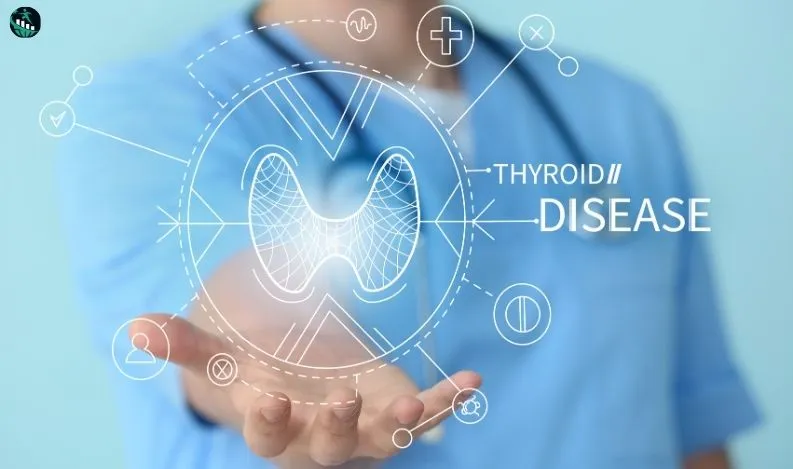
Understanding Thyroid Disease: A Comprehensive Guide
Thyroid diseases encompass a range of conditions that impair the functionality of the thyroid gland—a crucial part of the endocrine system responsible for regulating metabolism through hormone secretion. These disorders can have widespread effects on various bodily functions and overall health. This detailed guide delves deep into the nuances of thyroid diseases, exploring their types, symptoms, causes, diagnostic procedures, management strategies, and the implications of living with these conditions.
What is Thyroid Disease?
Thyroid disease refers to any disorder that results in the abnormal functioning of the thyroid gland, located at the front of your neck. This gland plays a pivotal role by secreting hormones that regulate your metabolic rate, impacting how your body consumes and converts energy. The primary types of thyroid disorders are:
1. Hypothyroidism (Underactive Thyroid): This condition is characterized by insufficient hormone production by the thyroid gland. It can lead to a slowdown in metabolic processes, affecting everything from energy levels to body temperature regulation. Common causes include:
• Hashimoto's Disease: An autoimmune disorder where the immune system erroneously attacks thyroid tissue, leading to chronic inflammation and diminished hormone production.
• Iodine Deficiency: Without enough iodine, a critical element in thyroid hormone production, the gland cannot synthesize adequate hormones. This condition is more prevalent in regions without iodized salt.
• Congenital Hypothyroidism: Some infants are born with a dysfunctional thyroid gland, which can lead to developmental issues if not treated early.
2. Hyperthyroidism (Overactive Thyroid): In contrast, hyperthyroidism occurs when the thyroid gland produces too much hormone, leading to an acceleration of metabolic functions. Causes include:
• Graves' Disease: The most common cause of hyperthyroidism, this autoimmune disorder leads to overstimulation of the thyroid, resulting in excessive hormone production.
• Thyroid Nodules: Sometimes, nodules or lumps in the thyroid can become autonomously functional, secreting hormones independently of the body's needs.
• Excessive Iodine Intake: Consuming large amounts of iodine from dietary sources or medications can trigger overproduction of thyroid hormones.
Symptoms of Thyroid Disease
The symptoms of thyroid disease are varied and can mimic those of other conditions, making diagnosis challenging. They are generally classified according to the type of thyroid disorder:
• Symptoms of Hypothyroidism: Include fatigue, unexplained weight gain, sensitivity to cold, dry skin and hair, depression, and heavy menstrual bleeding. These symptoms reflect the slowing down of bodily functions due to low hormone levels.
• Symptoms of Hyperthyroidism: Manifest as rapid heartbeat, insomnia, unexplained weight loss, heat intolerance, moist skin, and anxiety. These symptoms are due to the speeding up of metabolic processes in the body.
Both types of thyroid disease can lead to the development of a goiter, which is a visible enlargement of the thyroid gland.
Diagnosing Thyroid Disease
Accurate diagnosis of thyroid disease involves several steps:
• Medical History and Physical Examination: A healthcare provider will start by evaluating symptoms and medical history. During the physical exam, the doctor may palpate the neck to check for abnormalities in the thyroid gland's size or shape.
• Blood Tests: These are crucial for measuring levels of thyroid hormones (T3 and T4) and thyroid-stimulating hormone (TSH). Elevated TSH levels, for example, indicate hypothyroidism, while low levels suggest hyperthyroidism.
• Imaging Tests: Techniques like ultrasound or radioactive iodine uptake tests help visualize the thyroid gland's structure, identifying nodules, inflammation, or other abnormalities.
Management and Treatment of Thyroid Disease
Treatment strategies for thyroid disease aim to normalize hormone levels:
• For Hypothyroidism: The standard treatment involves daily intake of synthetic thyroid hormone levothyroxine. This medication helps to restore normal metabolism by replacing missing hormones.
• For Hyperthyroidism: Treatment options include antithyroid medications, radioactive iodine therapy to reduce gland activity, beta-blockers to manage symptoms, or surgery in severe cases.
Prevention and Outlook
While most thyroid diseases are genetically predisposed and not preventable, maintaining a balanced diet with appropriate levels of iodine can help prevent disorders associated with iodine deficiency. With timely diagnosis and proper treatment, most individuals with thyroid disease can lead healthy lives, although ongoing medication may be required.
Living with Thyroid Disease
Living with thyroid disease requires regular monitoring and lifestyle adjustments to manage the condition effectively. It is vital to adhere to treatment plans and keep regular appointments with your healthcare provider.
Conclusion
Thyroid diseases, while common, are manageable with the right medical approach and lifestyle adjustments. Awareness and understanding of your body's signals are crucial for early detection and effective management of these conditions.
Regular screenings and staying informed about your family's medical history can help catch thyroid issues early, improving the outcome of treatment. If you or someone you know is experiencing symptoms of thyroid disease, consult with a healthcare provider for a thorough evaluation and appropriate management.
Also Read:-







Recent Comments: